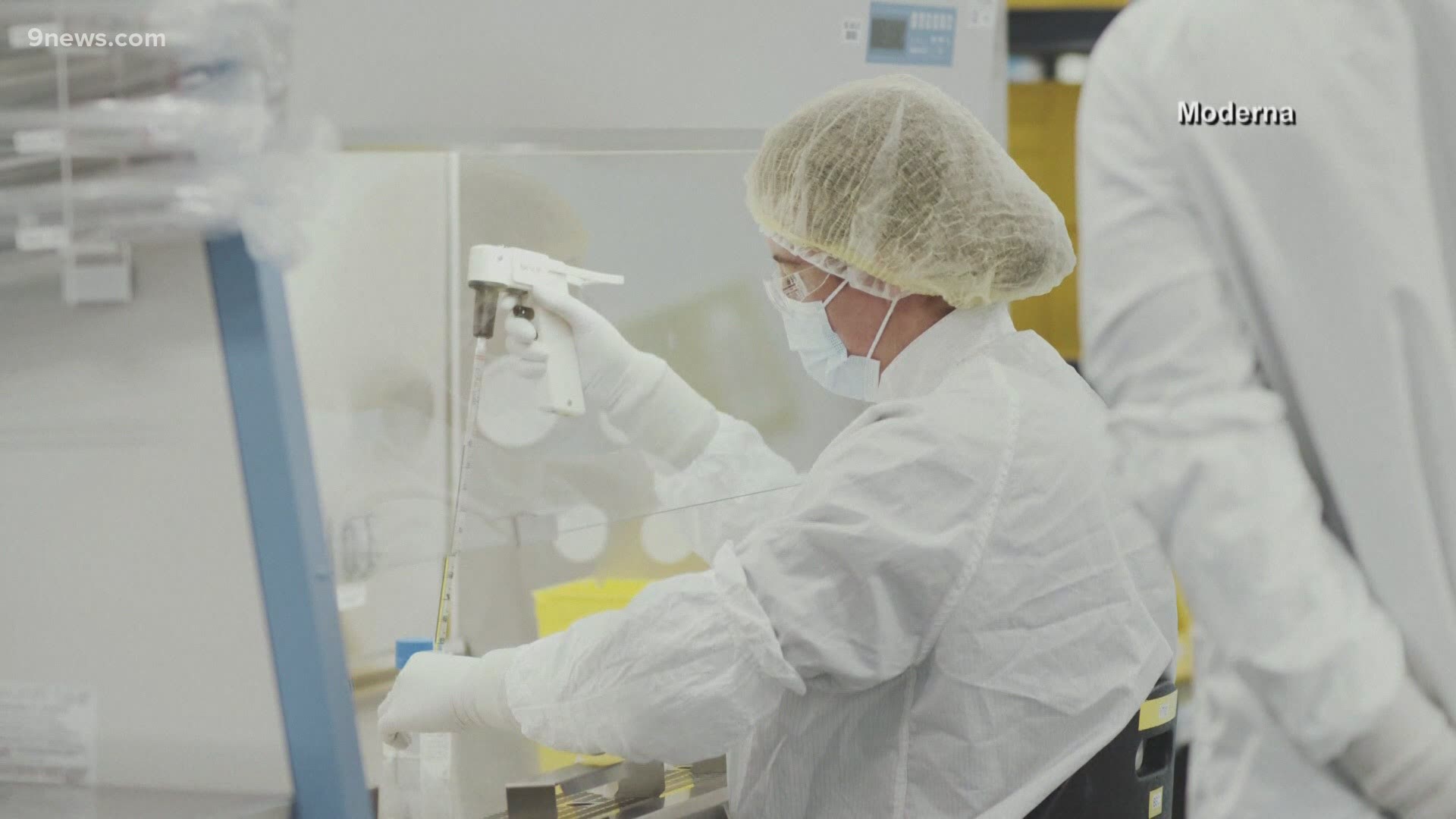DENVER — As more people get the COVID-19 vaccine, more side-effects are coming to light. Most notably, people with a history of Anaphylaxis and severe allergic reactions that require epi-pens, are now told they shouldn't get one just yet.
THE QUESTION
Should people with a history of Guillian-Barré Syndrome (GBS), an immune and nerve disease caused by viral and bacterial infections, get a COVID-19 vaccine?
THE ANSWER
Yes. According to Dr. Thomas Campbell, chief clinical research officer at UCHealth, there's nothing in trial data from both the Pfizer/BioNTech or Moderna vaccines that would suggest people with a history of GBS would be harmed by the vaccine.
WHAT WE FOUND
Campbell leads the team overseeing the Moderna COVID-19 vaccine trial in Colorado at UCHealth. He said no one participating in the Moderna or Pfizer trials developed symptoms of GBS, which can happen with other vaccines like the flu vaccine.
Because the flu vaccine can trigger GBS symptoms, those with a history of it are frequently told to think twice before getting it. But, since the COVID-19 vaccines don't trigger those symptoms, they should be safe to receive.
"The vast majority of vaccines are totally safe for people with Guillian-Barré," said Thompson. "I have not seen anything that has come out in the data released by Pfizer or by Moderna about a concern for risk of Guillian-Barré from getting these vaccines. There were no mentions of of it in the documents that have come out from the FDA and from the CDC Advisory Committee on Immunization Practices. So, at this time, I think we can proceed with the assumption that a prior history of Guillian-Barré would not be a contraindication to this vaccine."
The Merriam-Webster Dictionary defines a contraindication as "something (such as a symptom or condition) that makes a particular treatment or procedure inadvisable," so if GBS is not a contraindication, it's not getting in the way of someone getting a vaccine.
The National Institutes of Health said that there could be a connection between the actual COVID-19 virus and developing GBS, so taking a vaccine could help protect against that.
Right now, the only people specifically advised not to get the vaccine yet are people with a history of anaphylaxis, people who are immunocompromised (i.e. cancer patients undergoing chemo, transplant recipients) and children under 16.
>> Have something you want us to Verify? Email verify@9news.com with your question.
SUGGESTED VIDEOS: Local stories from 9NEWS

